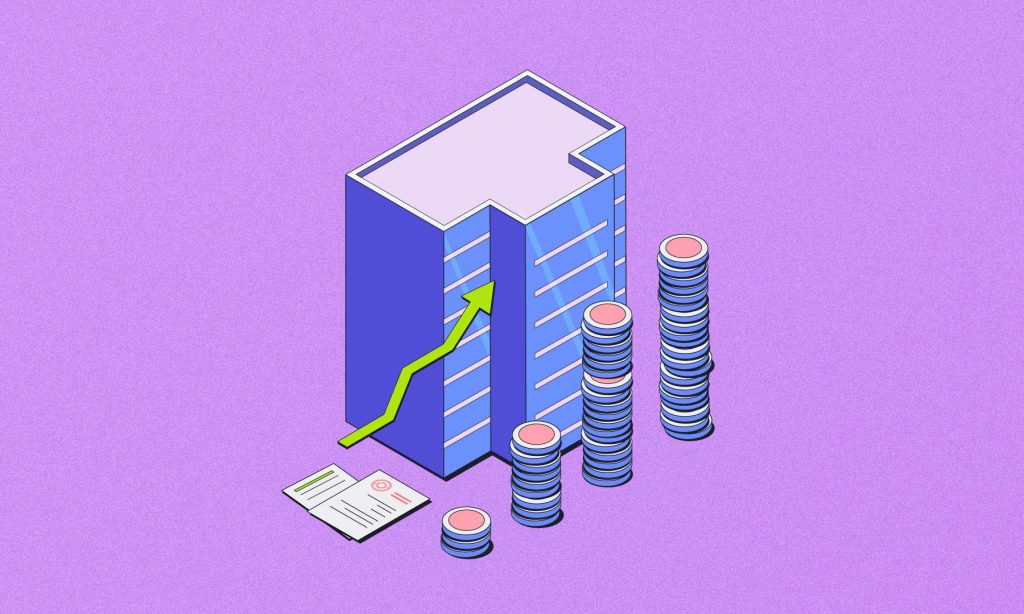If you want to take the Fixed Deposit (FD) route, banks are not the only option you have. Non-Banking Financial Companies (NBFCs) and corporations also put out FD offerings. These FDs, known as corporate fixed deposits, are a great investment option if you’re looking to earn higher interest rates.
Corporate fixed deposits: Explained
A corporate FD is a type of term deposit offered by corporations. Investors lock in money for a fixed period, typically from a few months to a few years. In return, the company guarantees a fixed interest rate for the entire period.
The interest rates vary depending on the company and the length of the investment period. Rates can range from 5% to 9% or higher and are typically higher than a regular savings account.
One of the benefits of corporate fixed deposits is that they are safer than other investments. The acquisition is backed by the company’s reputation and financial stability. Additionally, the investment is insured by the Deposit Insurance and Credit Guarantee Corporation (DICGC) up to a certain limit.
How are corporate fixed deposits different from bank FDs?
People tend to associate FDs with banks, but there are a few that corporates offer. As an investor, you should consider them, even if you choose banks. So let’s break down how different the two types of offerings are.
Interest rates
The interest rates the two offer differ significantly. Typically, corporate fixed deposits offer a higher interest rate than banks. This is because banks are more secure and have lower risks, and corporates need higher interest rates to attract investors.
Tenure
Another difference is in the tenure of the deposit. Like bank FDs, corporate fixed deposits have variable tenures. However, the minimum tenure of the latter is usually 1 year.
Risk
When it comes to risk, corporate fixed deposits are considered to be riskier than bank FDs. The creditworthiness of the issuing company is a crucial factor concerning corporate FD risks. Thus, it is essential to thoroughly research and analyze the company’s financials before investing.
Interest in premature withdrawal
One of the significant benefits of corporate fixed deposits is the interest factor when it comes to premature withdrawals. Most banks penalize investors for early withdrawals, but corporate FDs often offer the option of withdrawing the deposit before maturity for a smaller penalty.
Similarities between corporate FDs and bank FDs
As you may have seen from the discussion above, corporate FDs are similar to bank FDs in many ways. A few are discussed below.
Higher rate of interest for senior citizens
One of the similarities between company and bank fixed deposits is the higher interest rate for senior citizens. This is a great advantage for senior citizens looking for a safe investment option.
Option to choose investment tenure
Another similarity is that both give you the option to choose the investment tenure. And the maximum tenure in both cases is 10 years.
Guaranteed returns
Guaranteed returns are another point of similarity. With fixed returns on the investment, both options are quite safe and preferred by risk-averse investors.
Benefits of investing in corporate fixed deposits
Investing in a corporate fixed deposit has several benefits. A few of them are listed below.
- Fewer risks: Corporate fixed deposits are less risky than other investment options such as stocks or mutual funds. This is because they are not affected by market fluctuations and do not depend on company performance.
- No restriction on premature withdrawal: Secondly, there are no restrictions on the early withdrawal of funds from most corporate FDs. So, investors can withdraw their funds anytime without a penalty.
- Higher returns: The FDs offered by corporates bring higher returns than those run by banks. So they are a more profitable investment option.
Conclusion
Corporate fixed deposits are a great option if you’re looking to earn higher returns while minimizing risk. With competitive interest rates and flexible investment periods, these FDs are rather attractive.
FAQs
How do I choose the best corporate fixed deposits?
When choosing a corporate fixed deposit, it’s important to look at the interest rate offered, the credit rating of the company, and the FD tenure. Investors should also research the company’s financial stability and track record. Consulting a financial expert can also help.
What is the minimum investment amount in a corporate FD?
The minimum investment amount in corporate fixed deposits varies from company to company. You should check the company website to be sure.
What is the difference between FD and corporate FD?
Bank FDs are traditional fixed deposits offered by banks, while corporate FDs are fixed deposits from non-banking entities, often providing higher interest rates but with slightly higher risk.
Is it good to invest in corporate FD?
Investing in corporate FDs can offer higher interest rates than traditional bank FDs. However, it comes with slightly higher risk. Consider your risk tolerance and financial goals.
Who is eligible for corporate FD?
Individuals, NRIs, senior citizens, and cooperative societies can apply for corporate FDs. Applicants typically need to be above 18 years, provide KYC documents, and have registration and PAN details.
Is corporate FD tax free?
Corporate FDs are not tax-free. The interest income is taxable, and TDS may be deducted if it exceeds Rs. 5,000. The TDS rate is typically 10%.








